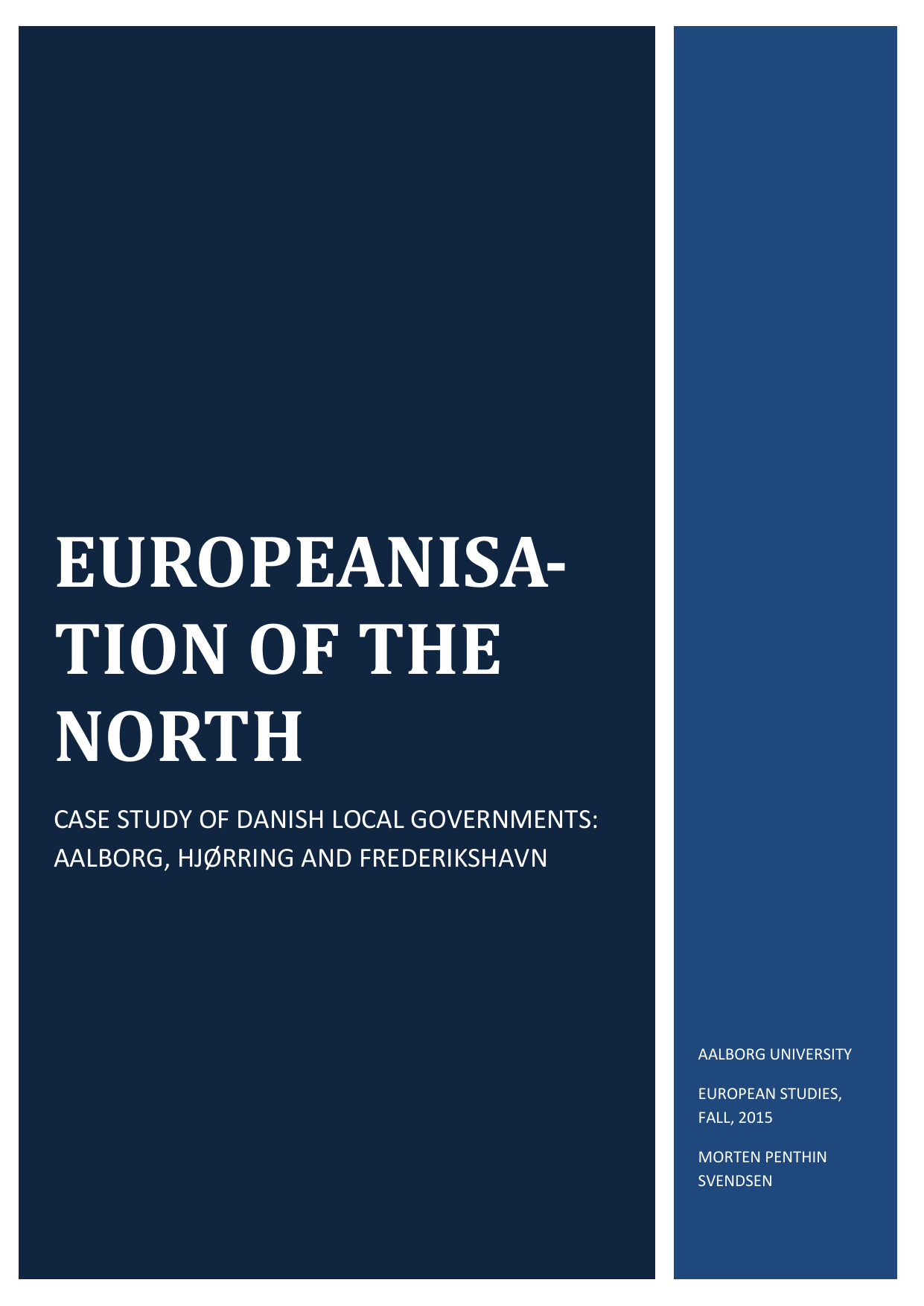
Europeanisation of the north: Case study of Danish local governments: Aalborg, Hjørring and Frederikshavn
Translated title
Europeanisation of the north: Case study of Danish local governments: Aalborg, Hjørring and Frederikshavn
Author
Term
3. term
Education
Publication year
2015
Submitted on
2015-12-13
Pages
123
Abstract
ABSTRACT This thesis wish to contribute to the extensive research field of Europeanisation literature, with a specific focus on EU-policies impacts to the local governments’ levels. With a theoretical basis in Europeanisation literature, the thesis conducts a case-study of three Danish local governments’: Aalborg, Hjørring and Frederikshavn to undercover the complex and increasingly developing relationship, between the cases and EU. Furthermore, the thesis works from three particular aspects, 1) to highlight the EU - local governments relationship 2) utilise Europeanisation literature theoretical framework to locate domestic change 3) evaluate if EU-policies matters. The analysis differentiates between different conceptual tools, to observe how local governments’ filters change and response to adaptation pressures created by EU-policies. The conclusions made are drawn from empirical studies, where extensive inter-views have been conducts from 16 individual- and grouped interviews from re-spondents in main-cases of Aalborg, Hjørring and Frederikshavn and shared po-litical- and administrative organisations NordDenmark EU-Office and BRN: Business Region North Denmark. The obtained data and conclusions, challenge mainstream Europeanisation literatures constellations and determines that local governments’ are increasing reshaping own political strategies to bend EU-requirements and programs to strengths local moderations initiatives and ambi-tions. Furthermore, ‘Europeanisation of local governments’ are increasingly filtered by mediating factors and controlled by a shared political culture based, in traditional models of governance, while local governments’ engage in EU-activities to exploit possible political, economic and networks opportunities.
Documents
